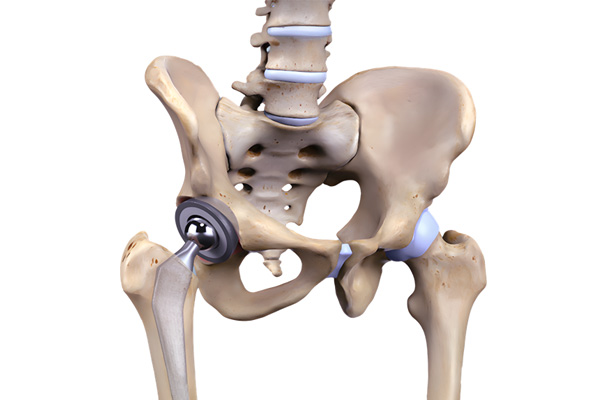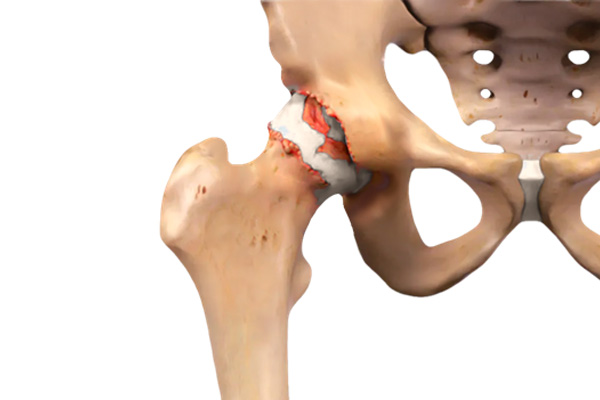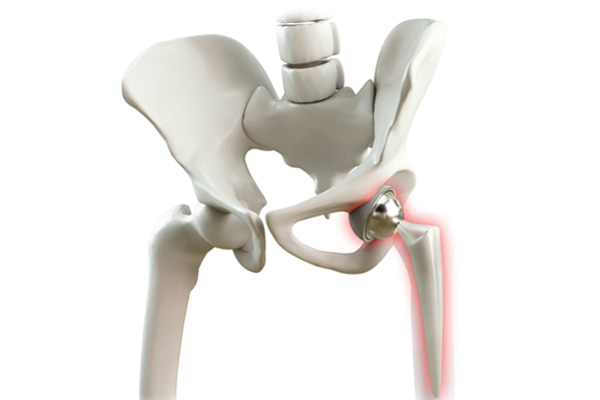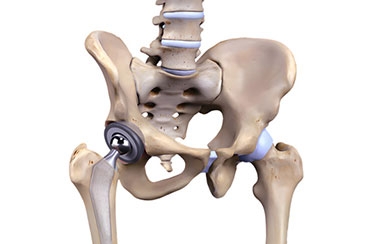How long will your hip implant last after surgery? This is one of the most common concerns among patients undergoing hip replacement. A successful hip replacement can significantly enhance mobility, reduce pain, and improve overall quality of life. However, the longevity of the implant depends on various factors, including the type of implant, surgical technique, lifestyle habits, and post-surgery care.

What is Hip Replacement?
Hip replacement, also known as total hip arthroplasty, is a surgical procedure performed to replace a damaged or diseased hip joint with an artificial implant. It is commonly recommended for patients suffering from severe arthritis, fractures, or other hip joint conditions that cause chronic pain and limit mobility.
During the procedure, the damaged ball-and-socket joint of the hip is removed and replaced with a prosthetic joint made of metal, ceramic, or plastic components. This artificial joint mimics the function of a natural hip, allowing patients to move more freely and without pain.

Why is Hip Replacement Needed?
A hip replacement is usually performed when non-surgical treatments such as medications, physical therapy, and lifestyle modifications fail to provide relief. Common reasons for undergoing a hip replacement include:
- Osteoarthritis – The most common reason, where cartilage wears down, causing pain and stiffness.
- Rheumatoid Arthritis – An autoimmune condition that leads to inflammation and joint damage.
- Hip Fractures – Severe breaks that cannot heal properly may require joint replacement.
- Avascular Necrosis – A condition where the blood supply to the hip bone is restricted, causing bone tissue death.
- Congenital Hip Disorders – Some people are born with hip abnormalities that lead to arthritis over time.
What Are the Benefits of the Direct Anterior Approach for Hip Replacement?
The Direct Anterior Approach for hip replacement offers several benefits, including faster recovery, less postoperative pain, a lower risk of dislocation, and a shorter hospital stay. Since this technique avoids cutting major muscles, patients often regain mobility more quickly and experience improved overall outcomes compared to traditional hip replacement methods.
How Long Do Hip Implants Typically Last?
Most hip implants last 20-30 years, but several factors affect their longevity, including implant material, patient activity levels, and post-operative care. With modern advancements like minimally invasive and robotic-assisted surgeries, patients can expect better outcomes and extended implant life.

What Factors Affect the Longevity of a Hip Implant?
Several factors influence how long a hip replacement lasts:
- Type of implant material (ceramic, metal, or plastic)
- Surgical technique and precision
- Patient’s weight and activity level
- Post-surgical rehabilitation and lifestyle habits
- Presence of any complications like infections or dislocations
What Are the Different Types of Hip Implants?
The longevity of your implant also depends on the material used:
- Metal-on-metal implants: Durable but less commonly used due to potential complications.
- Ceramic-on-ceramic implants: High durability and reduced wear over time.
- Metal-on-polyethylene implants: A common choice with good longevity.
- Ceramic-on-polyethylene implants: Provides excellent wear resistance and long-term performance.
How Soon Can You Resume Walking After Hip Replacement?
Most patients start walking with assistance within 24 hours after surgery. By the end of 1 week, many can walk without support. Regular physiotherapy helps regain strength and balance faster.
When Can You Return to Daily Activities?
- Light activities (like household chores): Within 1-2 weeks.
- Driving: Usually after 2-4 weeks (after surgeon’s approval).
- Work: Desk jobs in 2 weeks; physically demanding jobs may take up to 1-2 months.
- Sports & exercise: Low-impact activities can be resumed in 6-12 weeks.
What Are the Common Signs of Hip Implant Wear?
If your implant is wearing out, you may experience:
- Increased pain or stiffness in the hip.
- Difficulty in walking or performing regular movements.
- Clicking or instability in the joint.
- Swelling or inflammation around the hip.
How Can You Ensure Long-Term Success of Your Hip Implant?
To maximize the lifespan of your hip replacement:
- Maintain a healthy weight to reduce stress on the implant.
- Engage in low-impact exercises like swimming and cycling.
- Avoid high-impact activities like running or jumping.
- Follow your doctor’s rehabilitation plan.
- Attend regular follow-up checkups.
Can Hip Implants Be Replaced?
Yes. If an implant wears out or becomes loose, a revision hip replacement may be needed. This procedure involves replacing the old implant with a new one and is generally more complex than the first surgery.
Is Physiotherapy Necessary After Hip Replacement?
Absolutely! Physiotherapy is crucial for a smooth recovery. It helps improve:
- Strength and flexibility
- Balance and coordination
- Pain management
- Overall mobility
Can You Travel After Hip Replacement?
- Short trips: Allowed after one week.
- Long flights: Recommended to wait 2 weeks to avoid blood clot risks.
- Use compression stockings and take breaks to walk during long travels.
What Lifestyle Adjustments Are Needed?
- Use assistive devices like grab bars in the bathroom.
- Avoid deep chairs and opt for firm seating.
- Stay active but avoid high-impact exercises.
- Maintain a nutritious diet for bone and joint health.
Who Is the Best Hip Replacement Surgeon in Mumbai?
For the best hip replacement in Mumbai, consult Dr. Supreet Bajwa, a leading Fellowship-Trained Hip & Knee Orthopaedic Surgeon with expertise in Minimally Invasive and Robotic-Assisted Surgery.
Dr. Bajwa is one of India’s most skilled hip replacement surgeons, specializing in Direct Anterior Hip Replacement, a technique that offers:
- Faster recovery
- Less post-surgical pain
- No functional restrictions
With over 10+ years of experience and 1300+ successful hip & knee replacement surgeries, Dr. Bajwa is known for his precision in hip replacement procedures, ensuring optimal patient outcomes. He is among the few surgeons in India offering Cooled Radiofrequency Ablation for chronic hip pain, providing non-surgical pain relief solutions.
Choosing an expert surgeon like Dr. Supreet Bajwa ensures the best surgical outcome and long-term success. If you are considering hip replacement or experiencing hip pain, consult Dr. Bajwa for advanced, minimally invasive treatment options.
Book an Appointment Now: +91 9820727046
Bajwa Orthopedic Specialist Services Clinic – The best orthopedic care in Mumbai.


